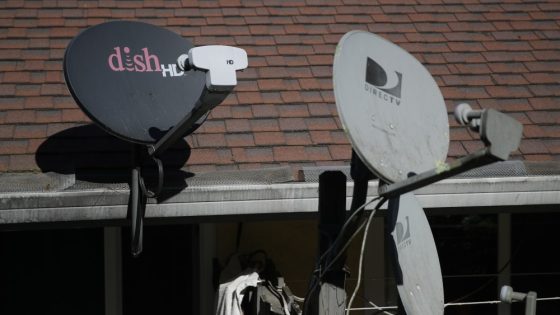DirecTV will write a check for one whole U.S. dollar — 100 cents — to buy onetime rival Dish Network and its Sling TV business.
Of course, that’s not the only financial component of the transaction, which would create the largest U.S. provider in the declining pay-TV industry with around 18 million customers. DirecTV will take on about $9.75 billion of debt that’s currently on the books of Dish parent company EchoStar. Effectively, EchoStar is giving away its shrinking satellite and streaming TV business in order to get rid of a huge chunk of debt, so it can focus on building out a wireless services play.
Why does DirecTV’s deal for Dish even include the “nominal consideration” of $1? For one thing, transactions often require some type of payment to become legally binding. A single-dollar sale price is usually a sign that the deal involves a property saddled with significant liabilities.
Here’s a look at some other famous $1 deals.
Barstool Sports: In August 2023, Dave Portnoy bought back the audacious sports and pop-culture media company he founded from gambling operator Penn Entertainment for $1 — after Penn had shelled out $550 million to acquire 100% control of Barstool, an ultimately unsuccessful bid to integrate the Barstool brand into its online-betting business. After the deal was announced, Portnoy said he is “never going to sell Barstool Sports, ever, I’ll hold it ’til I die.”
Newsweek: The Washington Post Co. sold the erstwhile newsweekly print powerhouse in 2010 to audio mogul Sidney Harman for $1 and assumption of its liabilities. Harman merged Newsweek with the Daily Beast Co.; Barry Diller’s IAC acquired a controlling stake in that venture before selling Newsweek to IBT Media in 2013. “I wish I had not bought Newsweek. It was a mistake,” Diller said a few months before IAC sold the property. According to Newsweek’s website, after criminal charges were brought against one of IBT Media’s principals, CEO Dev Pragad bought a 50% percent stake in Newsweek (and the company’s other principal, Johnathan Davis, retained his half of the company and became a silent partner).
TV Guide: In 2008, venture-capital firm OpenGate Capital bought TV Guide for a buck from Macrovision, the TV-tech company that had acquired Gemstar-TV Guide for its on-screen interactive program guide. OpenGate also extended Macrovision a $9.5 million loan to help it run the magazine over the next few years. Today TV Guide Magazine is owned by NTVB Media, while the TV Guide digital business is part of Fandom.
The rights to the “Terminator” film franchise: Back in 1984, James Cameron over his half of the rights to “Terminator” for $1 to Gale Anne Hurd, Cameron’s former producing partner and ex-wife, before they made the first film in exchange for a guarantee he wouldn’t be replaced as director. Cameron has expressed regret about that decision: “If I had a little time machine and I could only send back something the length of a tweet, it’d be — ‘don’t sell,’” he told the Toronto Sun in a 2009 interview.
SEE ALSO: DirecTV to Acquire Dish in Merger of Satellite TV Rivals
Source Agencies


